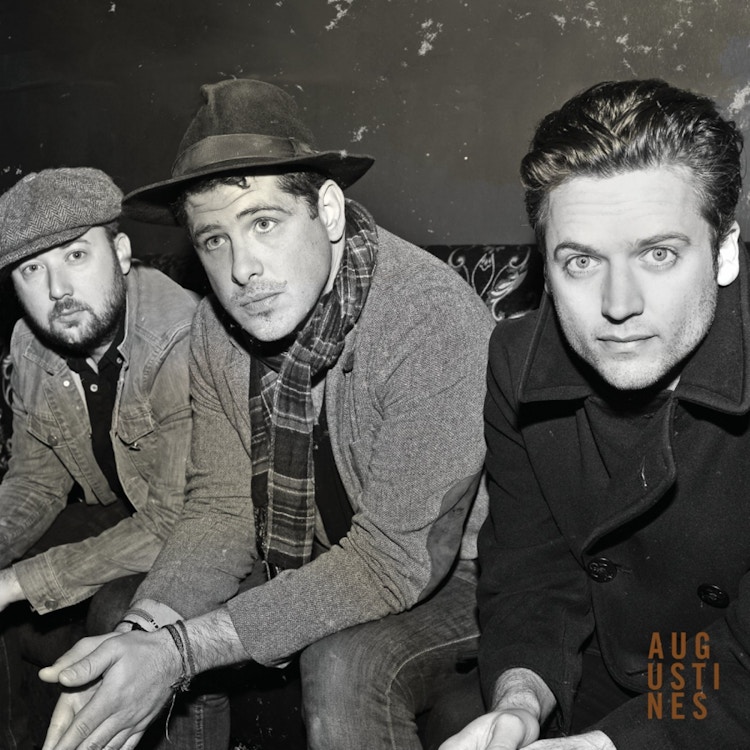Augustines – Augustines
"Augustines"

Augustines are a Brooklyn-based trio , but not as you know it, shunning the contemporaries that phrase lumps them in with and cultivating a sound that places them among Bruce Springsteen and Paul Simon.
Their first album, Rise Ye Sunken Ships, was an immediate and direct hit on the emotions, as singer and lead songwriter Billy McCarthy laid bare his family’s struggles with mental health problems. Its accessible, rousing communal choruses and exploration of dark days and coming out the other side spawned commercial (and, indeed, commercials) success. It was an album that became synonymous with the story behind it.
Their second record, however, is far more open to listener interpretation, and as such moves away from the instantaneousness of its predecessor. The gentle, marimba vibes of “Intro (I Touch Imaginary Hands)” is held back from the edge of indie-twee softness by the sandpapery vocals of Billy McCarthy, before track two, “Cruel City”, kicks the marimba into overdrive for a Graceland-style song of awakening.
Whilst the narrative of Rise Ye Sunken Ships is gone, there is still a mood arc that runs through Augustines. “Cruel City” is perhaps the first emergence of head above duvet after a long winter under a 20 tog depression. Similarly, “Nothing to Lose But Your Head” feels like the first upright assault on the world, the ‘fuck it’ attitude, the surge of energy, soundtracked by thumping drums, gliding strings, and a vocal plea ‘Hey/You’ve got to get me out of here/You’ve got nothing to lose but your head’.
“Don’t Look Back” hits it on the head, a slow build, jangling acoustic guitar, quiet-loud dynamics and a stirring insistence delivered in a gloriously gravelly tone. A softer, contemplative moment comes on the on, piano-accompanied “Walkabout”, with gently strumming guitar, building to a brass-laden ‘woah, woah’ chorus.
The album’s centrepiece “Kid You’re On Your Own” hits the Springsteen ground running, chugging along with its matter-of-fact acceptance of a life less than perfect , and a feeling of ever-building strength with every instrument that’s added to the mix of the bounding chorus.
“This Ain’t Me” and “The Avenue”, another particularly Boss-flavoured track, rattle on towards the end of the album, ending with the Ronseal of “Hold Onto Anything” a slow, subtly self-assured march that closes proceedings with neither flourish nor fanfare, just the fragile optimism that runs throughout.
Get the Best Fit take on the week in music direct to your inbox every Friday

Prima Queen
The Prize

Femi Kuti
Journey Through Life

Sunflower Bean
Mortal Primetime





